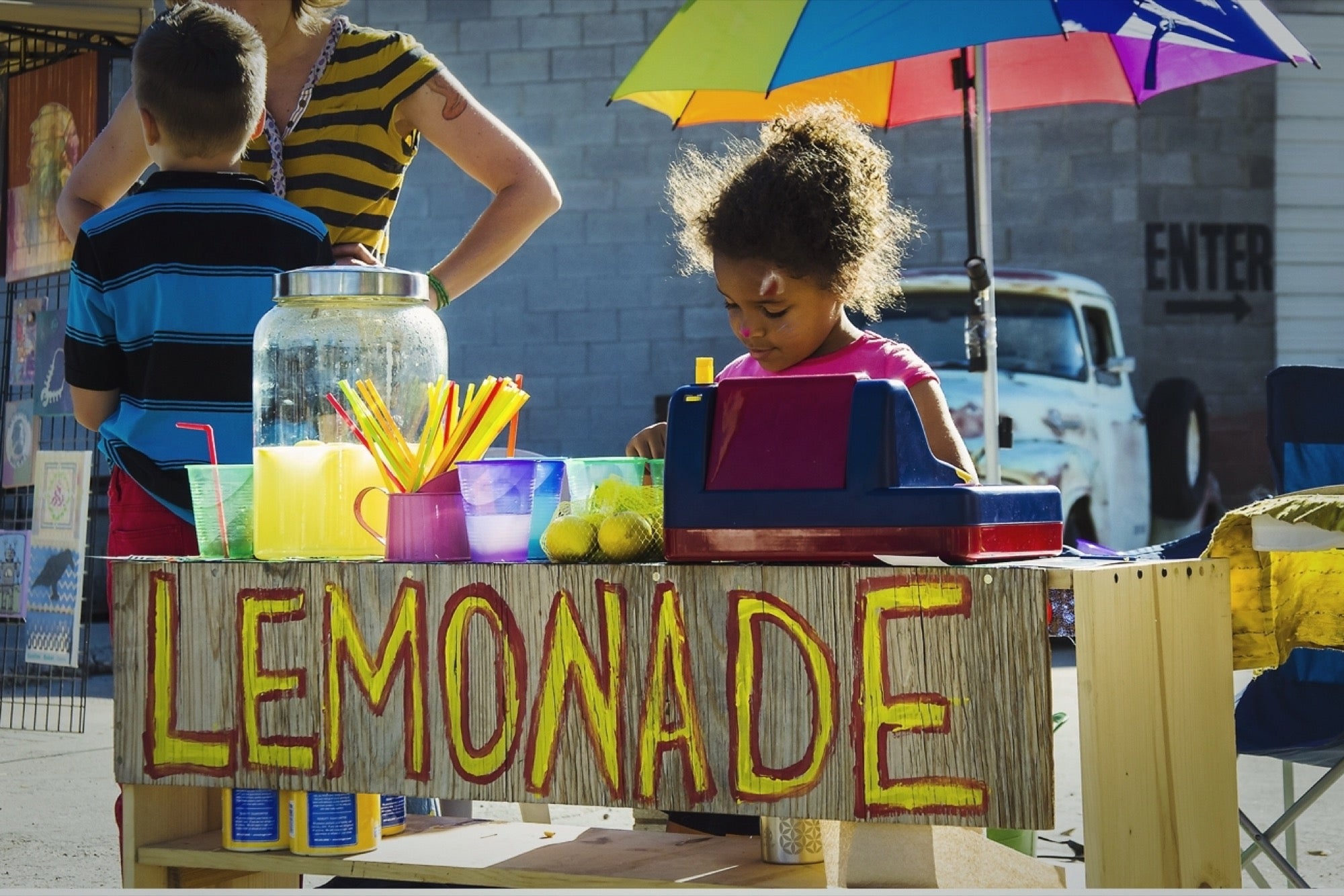11 Money Lessons Entrepreneurial Parents Can Teach Their Kids Over Summer Break Revisit this list once that familiar complaint begins: "Mom, I have nothing to do!"
By Darrah Brustein Edited by Dan Bova
Our biggest sale — Get unlimited access to Entrepreneur.com at an unbeatable price. Use code SAVE50 at checkout.*
Claim Offer*Offer only available to new subscribers
Opinions expressed by Entrepreneur contributors are their own.

It's that time of year again: The kids are home from school for the summer, and parents are sorting out how to occupy them. Ideally, kids should continue to learn during this down time, so why not offer them some valuable life lessons about money and responsibility?
Related: Raising Entrepreneurs for a Brighter Financial Future
As the author of a children's book series that teaches such lessons, I invited Jamie Brown and Meg Seitz, co-founders of Bea is for Business, to create a list of 11 simple money lessons you can teach your kids this summer. Here are their suggestions.
1. Make that ice cream truck visit a teachable moment.
Head to the ice cream truck and give your kids a finite amount of money and let them make the transaction on their own. "The key here is asking your children to look at the prices and compare that with the money they're holding. Also, always encourage them to communicate with the vendor versus your doing that," says Bea is For Business's CEO Jamie Brown.
2. Bring your kids on "errands day."
Brainstorm two or three tasks (meetings, errands, etc) you can take your children to. Let them be involved in whatever you're working on and talk about it together. "This allows you to kick-start the conversation with your kids about what you do job-wise," says company vice president Meg Seitz. The activity also allows you to talk about the allocation of time and the cost of the things you're purchasing that day.
3. Eat well and learn!
Go to a farmer's market together. Try making a small price comparison chart there and compare prices to those at the grocery store where you normally shop. "This can help your child see how local items compare to items shipped from faraway places," says Brown. "Also, farmer's markets are great opportunities to introduce kids to the farmers or staff who work there."
Related: Life as a Dad-trepreneur: Balancing Fatherhood and a Startup at the Same Time
4. Walk and talk real estate!
Take your kids for a walk around your neighborhood and look for real estate signs. See if you can find the price of the house (on a handout, or online). "A lot of children have no concept of the cost of a house, whether it is $200, $200,000 or $2 million," says Seitz. A close-up look at housing costs opens the door to conversations about long-term savings and the need to have financial goals.
5. Hire your kids as consultants.
Share a business challenge you are facing with your child and ask him or her to come up with solutions on how to make it better or solve the problem. "Encourage your child to draw a picture, diagram, list, letter or chart to help explain the solution," says Brown. Feel free to include conversations about how this ties into the finances of your business, so they begin to understand about "revenues in" and "expenses out."
6. Chores make a great starter job.
Give your kids a choice of chores with different values. The child can then see them as having different earning potential. "Once they make the connection that if they take on another chore that can earn them more money faster -- to buy something they want -- that just might jump-start some engagement in other chores," says Brown. I love to build on earning through chores by creating a structured allowance program. This helps begin conversations about earning and saving, both for the short and long term.
7. Tour a business.
Rather than (or in addition to) a trip to a zoo, consider a day trip to a local business, like a warehouse facility, that offers tours. "Local businesses are often willing to show kids a storeroom, back room or a process that's happening to make the business work -- like unloading a truck, unpacking boxes, or stocking shelves," says Seitz. Perhaps your own business would be a good option; you could show your kids its inner workings in a way you've never done before.
8. Help them start their own business.
Help your kids with the planning, set-up and implementation of a business (such as a stand to sell lemonade, popsicles, cookies, water or whatever they might enjoy selling). "When a child has a little help from mom or dad, they can learn so much more about costs, pricing, marketing and selling," says Brown. Help them find their own entrepreneurial spirit!
9. Get them into the kitchen.
Plan out a summer dinner menu. Then, create a budget for the meal and try to stick to it as you shop at the grocery store together. "It's a really easy idea that can become like a game -- and make grocery shopping a wee bit more manageable," says Brown.
10. Set up a bank account.
Go to the bank together to set up a bank account for your child. If you're not ready to do that, allow your child to accompany you to the ATM. "If you talk your kids through what you're doing, you'll have the opportunity to teach your kids about words like 'withdrawal,' 'deposit' and 'balance,'" says Seitz. I love to point out that money doesn't magically appear from a mysterious machine on the wall. You should do this, too; use this opportunity to talk about earning and the value of a dollar.
11. Utilize time in the car.
When you're on a road trip, present your child with monetary word problems as you drive. "A great example is, 'If I have $20 and I invest half in a lemonade stand, how much do I have left in my piggy bank?'" says Brown. "Or, 'If I earn $30 and give $10 back to mom for lending me money, how much do I have left?'"
Try some or all of these activities this summer and see if your child gets excited to keep learning! There are some free resources on both of our sites: Finance Whiz Kids and Bea is For Business. Maybe you'll even find that you have a handy helper for a lot of these activities!
Related: Bring Your Child to Work Day Is Too Valuable to Limit to Once a Year










